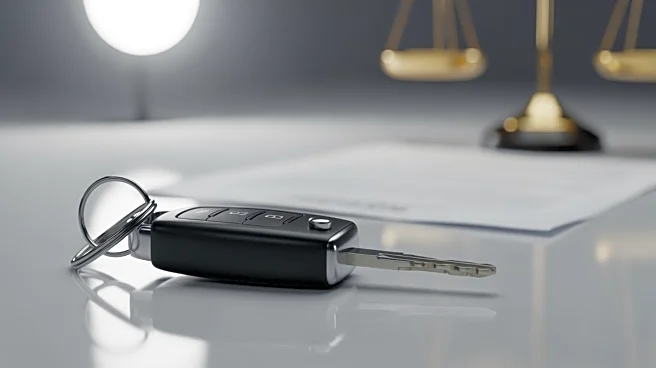What's Happening?
A Florida appeals court has ruled in favor of Lyft, affirming that the ride-sharing company is protected from negligence and vicarious liability lawsuits under the state's 2017 Transportation Network Companies
(TNC) statute. This decision came after a lawsuit was filed against Lyft following a 2017 accident in Miami involving a Lyft driver, Rolando Cepero, and a motorcyclist, Dexter Franklin, who suffered severe injuries. The court's ruling emphasized that ride-share drivers are considered independent contractors, thus shielding companies like Lyft from liability for drivers' actions. The plaintiff, Natasha Abner, argued that Lyft was negligent in hiring Cepero, who had prior traffic citations. However, the court found that the TNC statute, which was in effect at the time of the accident, applied to the case, and that the evidence presented did not demonstrate negligence on Lyft's part.
Why It's Important?
This ruling underscores the legal protections afforded to ride-sharing companies under Florida's TNC statute, which could have significant implications for similar cases in the future. By classifying drivers as independent contractors, the law limits the liability of companies like Lyft and Uber, potentially reducing their legal and financial risks. This decision may influence how ride-sharing companies operate and manage their driver relationships, as well as impact the legal strategies of individuals seeking to hold these companies accountable for accidents. The ruling also highlights the ongoing debate over the classification of gig economy workers and the responsibilities of companies that employ them.
What's Next?
The decision may prompt further legal challenges or legislative efforts to address the balance between protecting ride-sharing companies and ensuring accountability for driver conduct. Stakeholders, including lawmakers, ride-sharing companies, and advocacy groups, may engage in discussions about potential amendments to the TNC statute or similar laws in other states. Additionally, the ruling could influence how insurance policies are structured for ride-sharing drivers and companies, as well as impact the broader gig economy landscape.










